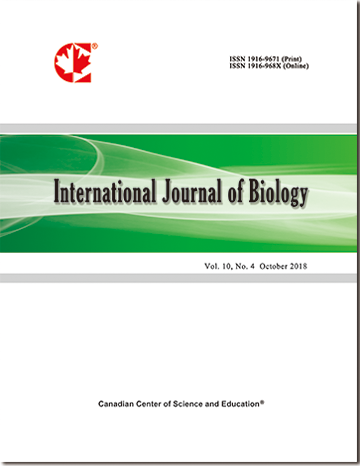Levels of Apigenin and Immunostimulatory Activity of Leaf Extracts of Bangunbangun (Plectranthus Amboinicus Lour)
- Melva Silitonga
- Syafruddin Ilyas
- Salomo Hutahaean
- Herbert Sipahutar
Abstract
Bangunbangun (Plectranthus amboinicus Lour) consumed by the mother, who just gave birth in North Sumatra, Indonesia in particular the Batak tribe, to increase the production of breast milk. This plant is known to have a high content of nutrients, especially iron and carotene. Also known to have many benefits, among others, as an antipyretic, analgesic, wound medicine, cough medicine, and thrush, antioxidant, antitumor, anticancer, and hypotensive. The study was conducted to determine levels of apigenin of Bangunbangun’s leaves and evaluate its immunostimulatory activity in rats (Rattus norvegicus). Analysis of apigenin using High Performance Liquid Chramtography method (HPLC). Evaluation of immunostimulatory activity carried out by measuring the levels of imonoglobulin G (IgG), imonoglobulin M (IgM), Lysozyme and Monocytes. Analysis of IgG and IgM are using Elisa method (Sigma). Serum lysozyme activity was measured by the spectrophotometric method. Monocytes were analyzed by using ABX Micros 60. Organ histology preparations made by hematoxylin-eosin staining. Data were analyzed by ANOVA and showed that by giving the Ethanol Extract of Propolis (EEP) of 500 mg / kg bw in rats, with a significant increase of IgM and lysozyme activity with very significant. EEP give a very significant effect on levels of IgG. Monocytes were higher in mice given EEP, but did not differ significantly compared with mice not given EEP. Lymphoid organ weights are all under normal circumstances. Giving EEP 500 mg / kg bw mice, significantly increased the weight of the liver and spleen, but does not affect kidney weight.
- Full Text:
 PDF
PDF
- DOI:10.5539/ijb.v7n1p46
Index
- ACNP
- AGRICOLA
- BASE (Bielefeld Academic Search Engine)
- CAB Abstracts
- CiteFactor
- CNKI Scholar
- CrossRef
- DTU Library
- Elektronische Zeitschriftenbibliothek (EZB)
- Excellence in Research for Australia (ERA)
- Google Scholar
- Infotrieve
- LIVIVO (ZB MED)
- LOCKSS
- Max Planck Institutes
- MIAR
- PKP Open Archives Harvester
- Qualis/CAPES
- ResearchGate
- ROAD
- SafetyLit
- SHERPA/RoMEO
- Technische Informationsbibliothek (TIB)
- Universe Digital Library
- WorldCat
Contact
- Ryan JonesEditorial Assistant
- ijb@ccsenet.org
